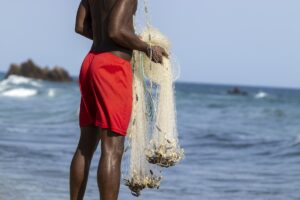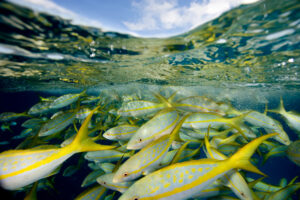News
Ministerial Statement
Published
9 years agoon
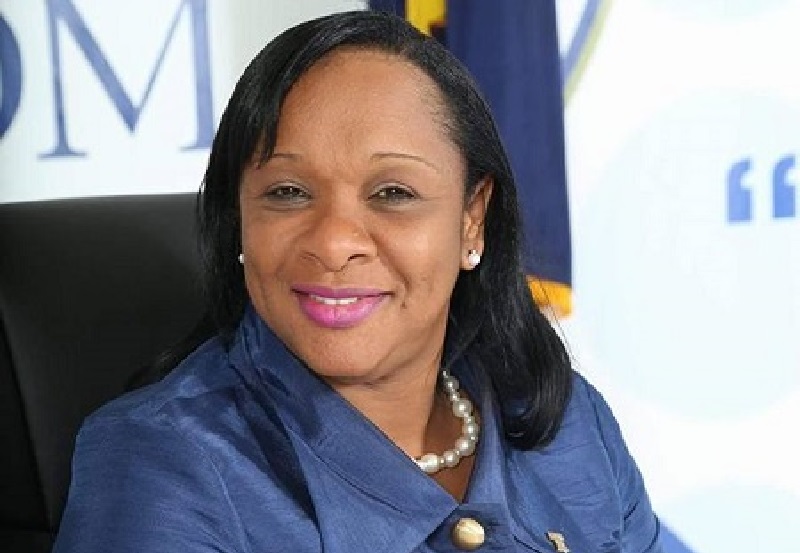
Turks and Caicos, July 27, 2017 – Providenciales – Salutations: Whilst many are delighting in engaging in negativity, a number of positive things are happening for these Islands. My Government is committed to continuing to keep its people informed through Town Hall Meetings, Press Releases, Press Conferences and social media. I am also pleased to announce that over the next few weeks, we will be making scheduled appearances on Radio and TV networks.
Mr Speaker, the Premiers Office coordinated a Policy Agenda and from time to time in accordance with the Code of Conduct and the Standing Orders of this House through ministerial statements, Ministers will make major statements on policy.
As Premier and Minister of Finance, my Office and Ministry has been focusing on major policy initiatives and today I highlight a few.
POLICY UPDATES
PUBLIC CONSULTATION POLICY
Mr Speaker in light of the recent challenge to Government processes in the area of consultation, my government recognized the need for greater consistency in our approach to consultations, planning and practice allowing both public official and interested parties a sense of what may be expected from a consultation; structured analysis of submissions to consultations will also help to ensure a balance of viewpoints contribute to policy-making.
Mr Speaker as Premier a Paper was presented to Cabinet to introduce a Public Consultation Policy. This document provides the first edition of the guidelines and consultation policy, to be regularly reviewed and updated annually. All officials involved in the preparation of legislative or policy proposals or in their evaluation should read these guidelines including officials and managers who are responsible for ensuring the quality of stakeholder consultation.
Mr Speaker, the proposed policy document is divided into two sections, section one outlines the key consideration in the preparations of consultation, the strategic plan and minimal requirements. The following section outlines the steps involved in the consultation process and planning.
These Guidelines have been produced as a practical guide for use by Government Departments, public bodies and any other organisations that may wish to consult with stakeholders. The Guidelines will also be of use to those who are interested in participating and responding to consultations. In this context, Mr Speaker, they are aimed at giving stakeholders a clear sense of the standards of consultation that should be expected from public bodies. The Guidelines are particularly relevant to public bodies with regulatory responsibilities, as consultation in advance of making regulations is accepted good practice and, in a number of cases, mandatory.
While not designed as a prescriptive list, the Guidelines set out the different aspects that public bodies should consider when engaging in consultation.
MAJOR POLICY INITIATIVES WITH CDB
Mr. Speaker, my government in its quest to ensure that development planning is comprehensive, and covers all aspects of the national economy, have partnered with the Caribbean Development Bank to assist the TCI in undertaking three critical technical assistance studies that would benefit these islands in the medium to long term.
Solid Waste Management
Mr. Speaker just last week my Government hosted a team from the Bank to discuss an Integrated Solid Waste Management approach to the generation, treatment and disposal of waste in these Islands. Mr. Speaker, Solid Waste Management involves everybody throughout the length and breadth of these Islands, and it is my Government’s intention to advance a technical assistance loan from the Bank to assist us in updating the waste management strategy for the country as well as designing the best option for waste disposal on each Island.
Our Islands do not always depict our country’s tagline and as we clean up the streets and communities, we must put in place proper management systems that will address littering, indiscriminate dumping and management of landfills also known for us as dump sites. Public education and fines will also be hallmarks of the new Policy.
Coastal Protection and Management
Another important technical assistance study Mr. Speaker that the Government is advancing is the loan assistance related to Climate Resilient Coastal Protection and Management that we had hoped would have been before us today for debate. This technical assistance will focus on a feasibility study and prepare designs for coastal protection works on the islands of Grand Turk, Salt Cay and Providenciales. Shoreline management plans for the Islands will also form part of this technical assistance.
Transport Study
Mr. Speaker, the technical assistance grant for the Transport Study was approved in 2016 under the previous administration, but very little progress was made to date. Mr. Speaker during last week, my Government made a commitment to move this project forward in an effort to ensure that there is a transport master plan study review of the road network, ports and airport is completed.
Mr. Speaker these three critical assistance projects can transform these Islands as we envisage the future with spill off industries and employment opportunities arising from converting waste to energy; we look forward to the recommendations for developing our road network and upgrading our port facilities. Mr Speaker our future looks even brighter as we plan for implementing mitigation measures for strengthening our sea defences against climate change impacts.
INVESTMENT POLICY STATEMENT
In 2015 TCIG underwent a review of the current Investment Policy. An Investment Policy Working Group.
The Working Group was tasked with reviewing the current Investment Policy, with specific focus on Foreign Direct Investment (FDI) and its challenges in light of the Government’s goal of achieving “Inclusive Economic Growth’.
The Working Group reviewed the policy and further developed some key questions to aid the policy makers in their consideration of a revised policy.
It was found that the main challenges were:
- Encouragement of Development Order being interpreted ‘too narrowly’ as if only pertaining to ‘Bricks & Mortar’ projects, despite this not being explicit in the policy
- Incentives focused primarily on Customs duties – other incentives needed to be considered
- Review the Investment model – the traditional approach of giving incentives to Invest and then re-couping through Tax is limited in TCI as no direct taxation.
- Vetting of investors – there was a need to build capacity of Invest TCI and Ministry of Finance for there should be a robust 4 factor test, namely (i) Is the project ethical/legal, (ii) Does the investor have relevant experience to ensure success, (iii) Does the investor have a team that can deliver to completion and (iv) demonstration that ensures the investors are serious.
Methodology & Approach
The Working Group reviewed the policy and further developed some key questions to aid the policy makers in their consideration of a revised policy.
Following the discussions on this the Consultant developed a White Paper and recommended an Inclusive approach to consultation, i.e. a Stakeholder Consultation. The Consultation was a one day consultation was carried out on May 16th, 2017 with a mixed group of Stakeholders drawn from across different sectors. Along with the White paper several key questions were developed for discussion under 4 Session headings. The intent was to stimulate Stakeholders thinking concerning the Investment climate overall. These questions were circulated prior to the stakeholder consultation meeting and discussed during the Stakeholder engagement:
Session 1: Investment Targets
- What sectors/sub-sectors in the TCI have investment potential? And why?
- High end tourism?
- IT Development Center? If yes, what areas?
- Financial Services Hub?
- Agriculture Development? If yes, what areas?
- Fisheries? If yes, what areas?
- Manufacturing? If yes, what areas?
- SMART Specialization?
- Medical Tourism?
- Retiree Tourism?
- Other
- How should these sectors be marketed?
- What should be the role of the private sector in the promotion? And who should join TEAM TCI? How should TEAM TCI activities be funded?
- How much appetite is there for Invest TCI being a One-Stop-Shop for investment?
- Is there a role for cooperative marketing in investment promotion?
Session 2: Enabling Environment
Looking at taxation and the delivery of government services, there was much discussion as to what we must do to create a more enabling business environment?
Session 3 – Incentives
What are the current priority sectors are? Should there be any others added to this and why?
Does the Government wants foreign investors to assist in community projects and MSME development. Should this be as part of the Development Agreement process? If so what suggestions are there to accomplish this objective?
My Government is keen to the finalization of this Policy next month and to ensuring that we create a new environment.
PROPERTY REFURBISHMENT POLICY
Introduction
The Turks and Caicos Islands has developed into a “high end” travel destination, providing 4 and 5 star accommodations to upper income families. The Island’s resort clients expect a high level of quality in their accommodation and are prepared to seek other alternatives if the quality falls to unacceptable levels. In order to encourage investors to maintain a very high quality level, the Turks and Caicos Islands has traditionally provided incentives as part of Development Agreements to encourage ongoing refurbishment.
Recently a number of Development Agreements have expired and developers have or have expressed intentions to submit requests to the Government to obtain duty concessions for the continued refurbishment of their properties. In response to the queries, the TCI Government Cabinet agreed to establish a new Refurbishment Policy to cover tourism lodging facilities and designated restaurants in the Islands. This Policy will outline the background to the Government’s refurbishment activities, discuss the rationale for providing incentives and outline the types and length of time for the incentives.
Policy Rationale
In the Caribbean high-end property developers face high construction costs, high and rising utility costs and high labour costs combined with intense competitive pressure to attract travellers. All of these factors place significant pressure on corporate profitability according to independent research firms. Moreover, property developers pay significant taxes during operations (e.g. customs duties, customs administrative fees, work permit fees, business license fees) and contribute significant indirect tax revenue garnered from their customers (e.g. food and beverage taxes, departure taxes).
Despite the intense competition and higher costs of doing business research has found that renovation is critical to a hotel maintaining global standards and being fresh and technologically aligned. While resort owners have a desire to maintain high quality facilities, if profit margins shrink there is pressure on owners to forego maintenance spending which results in the steady degradation in the resort product. In turn, this lower quality leads to lower occupancy rates which in turn leads to reduced rates to owners and lower tax revenues to Government.
The Goal of the Government’s new Refurbishment Policy is to “ensure that vacation properties and designated restaurants in the Turks and Caicos Islands are maintained at a high international standard to ensure high occupancy levels, competitive room pricing and a superior customer experience.”
The TCI Government also has a financial interest in maintaining, high quality facilities. If the Islands high end hotels can maintain a higher daily hotel rate and higher occupancy, Government tax revenues from the various taxes on the tourism sector would remain high and the country’s brand would be enhanced. If the refurbishments do not occur, then product quality declines and with it prices and/or occupancy rates leading to a reduction on Government revenues.
AIR BnB
Currently, the Turks and Caicos Islands are experiencing a significant increase in the number of home owners entering the tourist accommodation business via vacation villa/home rental.
These properties are booked online directly from the owners, property management companies or websites that offer vacation villa/home rentals, such AirBnB, VRBO (Vacation Rental by Onwer), HomeAway etc.
My Government recognizes the potential of this industry as a tremendous business opportunity for our local business persons, however, as we take steps to ensure the development and sustainable growth of this sector, we must ensure that it is managed in a well regulated environment/manner to the benefit of the business community and Government.
Mr. Speaker, I believe the area of Air BnB is a critical area which like VRBOs must be regulated for several reasons. TCI has developed itself as a high end destination, we must be able to ensure that the rental properties are of that such that is commensurate with my brand. Therefore Tourism is working to complete all the inspection guidelines to support strict compliance with standards set. We must also be mindful of the vulnerability of persons renting in homes in highly bushed or secluded areas. Once registered with proper addresses, security concerns can be addressed.
This (Mr. Speaker) must be a priority for the Ministry of Finance as a recent review of the websites offering property listings for the island of Grand Turk (alone) indicated that there are approximately 26 properties offered, however in comparison, the Revenue Control Unit, the department that is responsible for regulating the sector only had 9 properties registered.
In an effort to ensure compliance with our current tourist accommodation legislation by businesses and business persons currently operating in this sector, my Government has granted approval for the Ministry of Finance to commence official discussions with AirBnB with the objective of establishing a MoU.
The intent of the MoU would be to ensure that all TCI properties listed with AirBnB are complying with all laws regulating the tourist accommodation sector, eg the Business Licence Ordinance, the Hotel and Tourism (Taxation) Ordinance and the Tourist Accommodation Ordinance. This will also ensure that the standard of our tourism product (brand TCI) is maintained.
It is envisioned that, should a MoU be established between TCIG and AirBnB, it would be a guide for working with the other businesses/websites that offer vacation villa/home rental properties listed in the TCI.
Mr Speaker my Government is committed to creating policies and carrying out initiatives that will better the lives of our people. Mr Speaker we are working on behalf of our people and we will continue to keep them informed using every forum that is available to us.
Press Release: TCIG
You may like
News
The Department of Trade, Industry & Fair Competition to Host Export Readiness Workshop Under the theme “Empowering TCI Businesses for Local Growth and Global Markets.”
Published
1 day agoon
February 12, 2026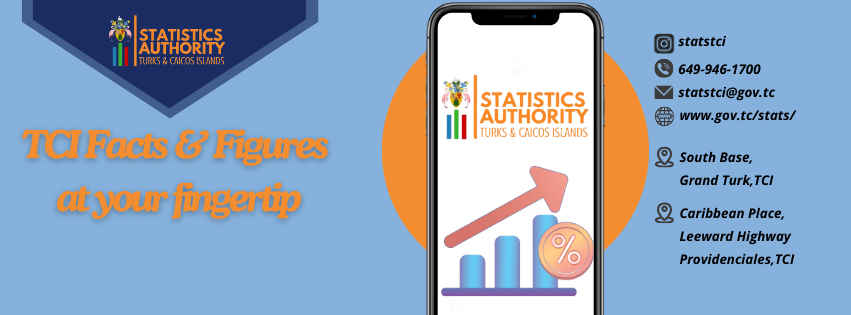
Providenciales, Turks and Caicos Islands, February 12, 2026 — The Department of Trade is pleased to announce the launch of its Export Readiness Workshop Series, a key component of its Trade Technical Assistance Programme.
This workshop series will address priority areas critical to small business development in the Turks and Caicos Islands, offering practical guidance and hands-on support in the following areas:
- Standards and Quality – Identification of and compliance with regulatory and market requirements
- E-Commerce and Digital Trade – Expanding access to regional and international markets
The workshops will be held February 24–27, 2026 and will be delivered in an in-person, interactive format. Each session is tailored to specific business sectors to ensure targeted support and practical application.
- Workshop 1 – February 24, 2026 | Agricultural Activities and Light Manufacturing (Food & Beverage)
- Workshop 2 – February 25, 2026 | Light Manufacturing (Arts & Crafts)
- Workshop 3 – February 26, 2026 | Light Manufacturing (Clothing, Jewelry & Apparel Accessories)
- Workshop 4 – February 27, 2026 | Light Manufacturing (Cosmetics & Skin Care)
Entrepreneurs and business owners are encouraged to take advantage of this opportunity to enhance their operational capacity, improve export readiness and position their businesses for sustainable growth.
To register, please complete the registration form via the following link Capacity Building & Export Readiness Workshop – Fill out form
For more information, please contact the Department of Trade, Industry and Fair Competition.
☎️Phone: (649) 338-3703
Email: tradetci@gov.tc
Stay updated on announcements by following @tcidepartmentoftrade on Facebook, Instagram, and @MadeInTCI on TikTok
News
Violence against children persists in Latin America and the Caribbean
Published
3 weeks agoon
January 26, 2026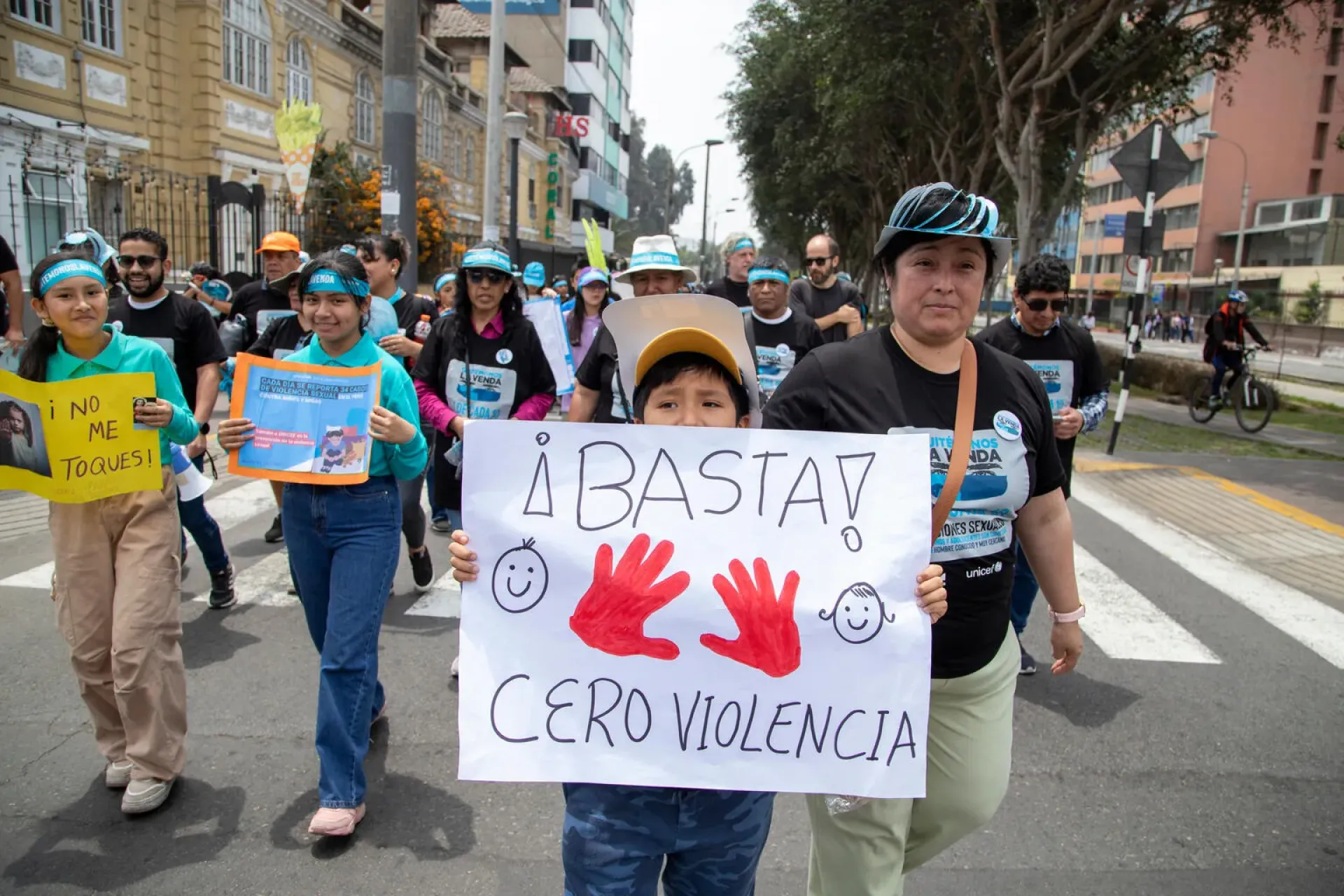
A new report by PAHO and UNICEF warns of the impact of violence from an early age and calls for strengthening prevention, protection and response from health, education and social protection systems to break the cycle of violence and ensure safe environments.
PANAMA CITY / WASHINGTON, D.C., 26 January 2026 – In Latin America and the Caribbean, violence continues to be a serious threat to the lives, health and well-being of millions of children, adolescents and young people, warn the Pan American Health Organization (PAHO) and UNICEF in a new joint publication, Violence against children and adolescents in Latin America and the Caribbean: New data and solutions.
The most serious consequence of violence is the death of thousands of children, adolescents and young people. Between 2015 and 2022, 53,318 children and adolescents were victims of homicide in the region.
The most recent available data, focusing on adolescents aged 15 to 17 years, show contrasting trends by sex. Between 2021 and 2022, the homicide rate among adolescent boys decreased from 17.63 to 10.68 deaths per 100,000 in Latin America and the Caribbean, although it remains high. During the same period, the rate among female adolescents doubled, from 2.13 to 5.1 deaths per 100,000.
Homicides occur in a context of rising armed violence in some areas of the region, associated with organized crime, easy access to firearms, social inequalities and harmful gender norms, which increasingly expose adolescents to situations of lethal violence.
Different forms of violence are interconnected and, in many cases, intensify over time. The report highlights how violence is present from a very early age. In the region, 6 out of 10 children and adolescents under 14 years of age are subject to some type of violent discipline at home, while one in four adolescents aged 13 to 17 experiences bullying at school. Nearly one in five women in Latin America and the Caribbean report having experienced sexual violence before the age of 18. Increasingly, violence manifests itself in digital environments, although available data remains limited.
“Every day, millions of children in Latin America and the Caribbean are exposed to violence – at home, at school and in communities with a gang presence. Multiple places and situations in the region present real risks and dangers for children,” said Roberto Benes, UNICEF Regional Director for Latin America and the Caribbean. “We know how to end the violence. In Latin America and the Caribbean, strong and sustained public policies are required to prevent and respond to violence in all its forms so that every child can grow up in a safe environment.”
“Violence has a profound and lasting impact on the physical and mental health of children and adolescents and violates their right to grow up in safe environments, at home, school and in the community,” said Dr. Jarbas Barbosa, Director of PAHO. “Health services play a key role in prevention and response: when health workers identify people and groups at risk early and provide timely, quality support, they can make a real difference for survivors, their families and communities.”
In addition to describing the scale of the problem, the report highlights evidence-based solutions that can prevent violence and mitigate its costs.
To advance this agenda and end violence in all its forms, PAHO and UNICEF urge governments in the region to strengthen and enforce child protection laws, ensure effective control of firearms, train police officers, teachers, and health and social workers, support parents and caregivers in respectful parenting practices, invest in safe learning environments, and scale up responsive services to ensure that all children and adolescents grow up protected, have access to justice, and live healthy, violence-free lives.
The report was validated during a regional ministerial consultation held on 23-24 October 2025, which brought together more than 300 participants from across the region, including ministers and senior officials from the health, education, justice and child protection sectors, as well as civil society representatives, youth leaders and international partners, with the aim of agreeing on concrete actions to build safer environments for children and adolescents.
News
Invest TCI Launches Fisheries Pilot to Strengthen the Local Fishing Industry
Published
3 weeks agoon
January 22, 2026
Providenciales, Turks and Caicos Islands – Thursday, 22nd January 2026: Invest Turks and Caicos has officially launched its
Fisheries Pilot Programme, an initiative designed to transform local fishing from a subsistence activity into a sustainable, growth-oriented business sector. The pilot supports 18 fisherfolk across the islands, providing each with funding of up to $50,000 to purchase vessels, engines, fishing gear, and other essential equipment. In addition to financial assistance, each participant receives business coaching and technical support to help them establish recordkeeping systems and strengthen their financial management.
The programme, developed in partnership with the Ministry of Tourism, Environment, Fisheries, and Marine Affairs, was created in
response to the increasing number of fishing-related applications under the MSME Programme. To address this surge and support the development of the sector, in FY 2024/2025 Cabinet approved $1 million in special funding dedicated specifically to commercial fishing activities.
The initiative officially kicked off in South Caicos on the 9th October 2025, where Invest TCI’s VP of SME Development, Alexa Cooper, and Business Advisor/Programme Manager, Lashena Simmons, joined by Director of Fisheries Mr. Ponteen and Dr. Alvarez, engaged participants in a roundtable discussion on progress, challenges, and next steps.
“This Fisheries Pilot is about helping our local fisherfolk move from survival to sustainability. Through our partnership with the Ministry,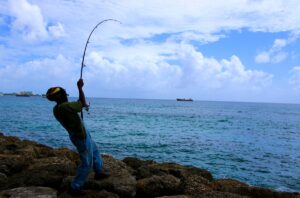 we are providing not only equipment and funding, but the business support needed to help them grow strong, viable enterprises. The island meetings ensure that participants remain supported and on track as the programme continues.” – Alexa Cooper, VP of SME Development, Invest Turks and Caicos.
we are providing not only equipment and funding, but the business support needed to help them grow strong, viable enterprises. The island meetings ensure that participants remain supported and on track as the programme continues.” – Alexa Cooper, VP of SME Development, Invest Turks and Caicos.
“I know firsthand how important this industry is to our future, not only environmentally, but in how it provides for local families and sustains entire communities. This Fisheries Pilot is about giving our fisherfolk the tools to operate more efficiently, earn more from their work, and build businesses that can last. Through this partnership with Invest Turks and Caicos, we are strengthening food security while ensuring the sector grows in a responsible and sustainable way.” – Hon. Zhavargo Jolly- Minister of Tourism, Environment, Fisheries and Marine Affairs.
Meetings will continue across the islands, with upcoming sessions planned for Grand Turk and Providenciales in February. Through this pilot, Invest TCI aims to build a model for future sectoral support, ensuring that local fisherfolk can operate more efficiently, profitably, and sustainably while contributing to national food security and economic resilience.
TRENDING
-

 News1 day ago
News1 day agoThe Department of Trade, Industry & Fair Competition to Host Export Readiness Workshop Under the theme “Empowering TCI Businesses for Local Growth and Global Markets.”
-

 TCI News3 days ago
TCI News3 days agoExperience Turks and Caicos and Aquila Host Product Development Workshops to Strengthen Sister Islands Tourism
-
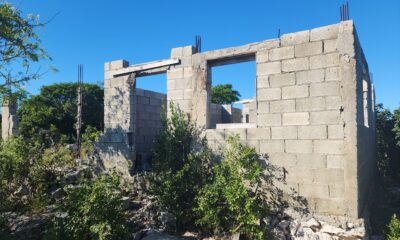
 TCI News1 week ago
TCI News1 week agoIllegal Structure Removed During Crown Land Enforcement Exercise in Five Cays

